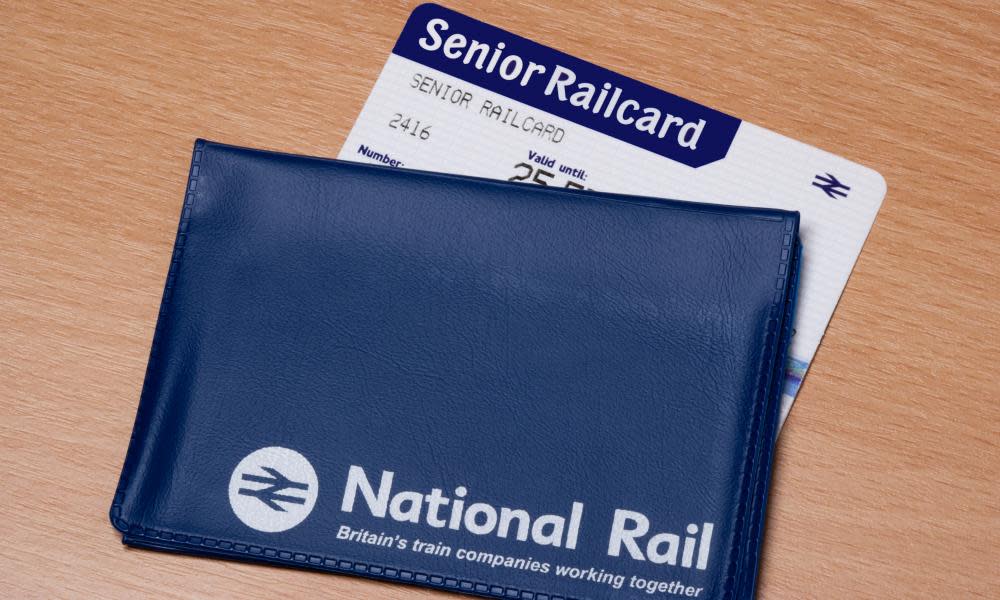Millions of British railcard holders denied Covid refunds

The UK government has ruled out giving refunds or extensions to the people holding railcards they have been unable to use as a result of the coronavirus pandemic.
The scheme, which offers discounts of about a third on travel, is available to a wide range of groups across Britain – including senior citizens, 16- to 25-year-olds, families and disabled people. It operates in England, Scotland and Wales but not Northern Ireland.
Related: UK transport boss urges ministers to get people back on trains and buses
Guardian Money has been deluged with letters from readers – including older people who have been shielding – asking why they were not entitled to refunds or time extensions for cards they have been unable to use.
Most of the cards cost passengers £30 for a year, meaning that refunding the 5.1 million customers who hold them could cost £150m.
The Rail Delivery Group manages the railcard scheme and a spokesperson said: “After careful consideration, the government has confirmed to us that railcards will remain non-refundable and will not be extended. We understand that this decision may not be the news our customers had been hoping for.
“Refunding or extending railcards for over 5.1m customers would come at a significant cost to the taxpayer at a time when the focus must be on maintaining rail services to support the country’s recovery from the pandemic.”
It has provided answers to holders’ questions here.
Anthony Smith, the chief executive of the independent watchdog Transport Focus, said: “Passengers bought railcards in good faith and will be disappointed by the decision not to extend them or offer a discount on renewal to make up for the period when we were encouraged not to travel.
“While the government continues to provide high levels of support to make sure the day-to-day railway keeps operating, it seems a pity some slack could not be given on this issue to encourage people back to rail travel.”


